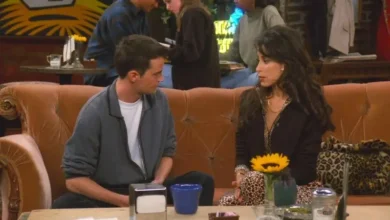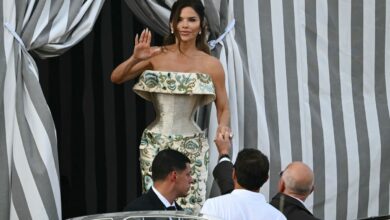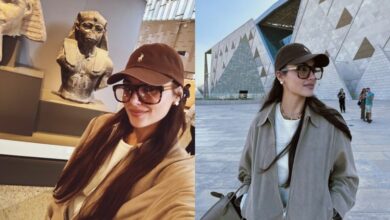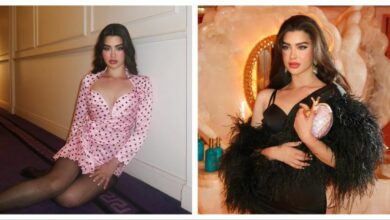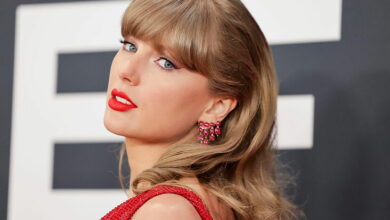Fashion 2024: Knitwear, ribbons and other trends for the year ahead
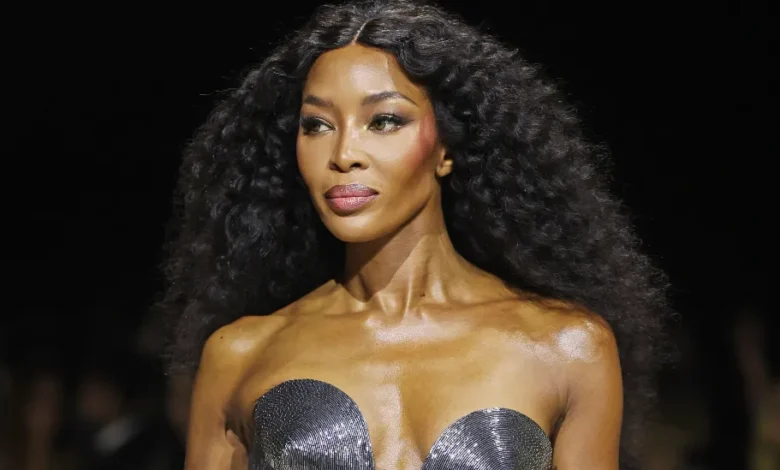
It’s hard to look fashionable in a Christmas jumper covered in mince pie crumbs and spatters of mulled wine, so we’re not here to make anybody feel bad this festive season.
But come spring, many of us will be spending way too much money on the hottest looks, in an inevitably fruitless attempt to look as good as the models on our Instagram feed.
Here are eight of the biggest fashion trends set to dominate 2024.

1. Polka dots
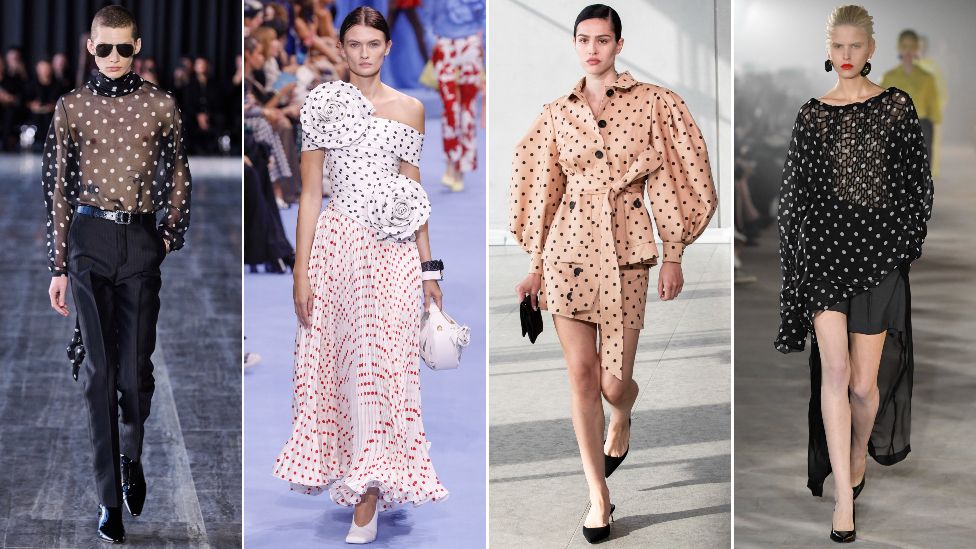
We counted every single polka dot at every fashion show this year, and can tell you that the total came to 12,487,396. The runways, in other words, were packed full of them.
The pattern is often popular in summer, but really the prints are a timeless and versatile trend which you’re likely to see a lot of throughout the next year.
“Polka dots can be relied upon for elegance and impact,” said the Telegraph. “Spots are playful; they don’t take themselves too seriously. Even the name, polka, suggests joie de vivre.
“This time around, we are making them our own. They’re big and bold, they’re imperceptibly small, they’re punchy, they’re muted… This is a print for everybody: it’s genderless, classless, ageless and timeless. It’s time to join the dots.”
2. Cherry red
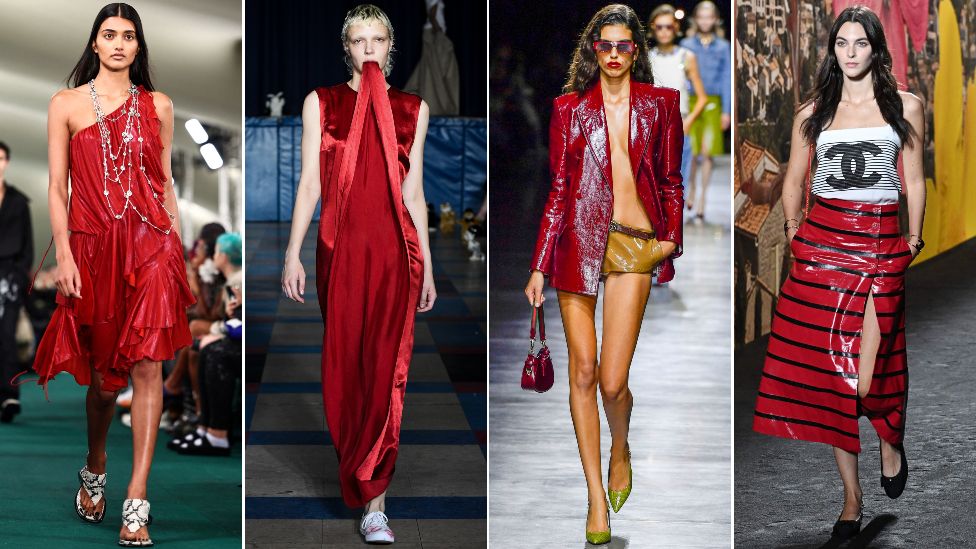
With the exception of the annoying stone you have to spit out at the end, we love everything about cherries – and this season they provided the runways with a distinctive, vibrant and confident colour.
Some fashion houses put forward designs which were cherry red from head to toe, while others kept it limited to a skirt or jacket and combined it with other colours to make an ensemble.
“Fashion’s obsession with bright red has been impossible to ignore in recent seasons, seen on the runway but also the red carpet,” said Vogue’s Alex Kessler.
“Spring/summer 2024 [collections] brought a noticeable shift towards deeper and more opulent versions of the shade.”
3. Metallics
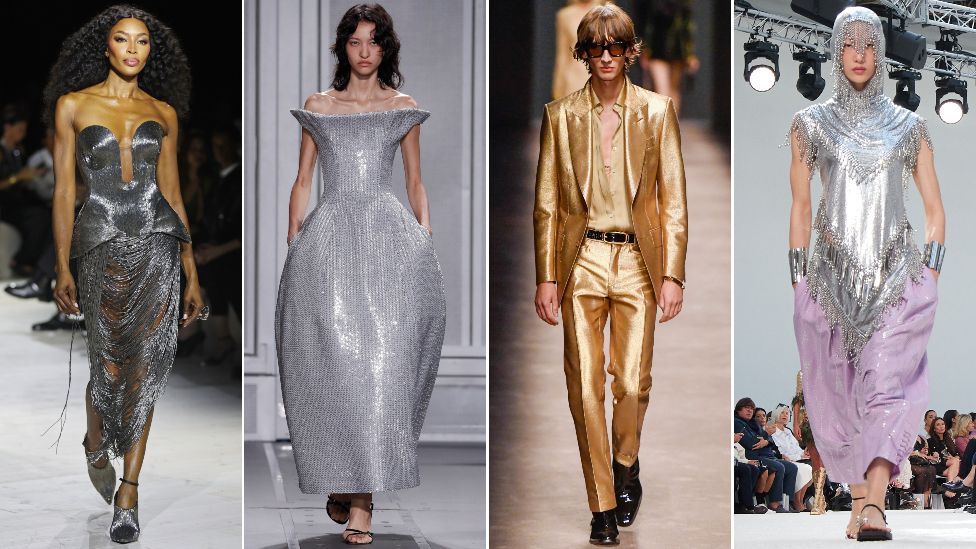
Several designers took inspiration from the pipes under their kitchen sink for this next trend – a variety of outfits and dresses with a metallic sheen.
One of our favourite Met Gala themes of the last decade was 2016’s Man vs. Machine, which saw A-list guests dress in silver, futuristic colours with robot-inspired accessories.
This trend is reminiscent of those outfits and dominated during Paris fashion week, with Net-A-Porter noting: “Swathes of shimmering metallics glistened across the SS24 runways.”
But if you’re opting for gold, careful not to overload. “Metallic gold can have a gladiator look,” pointed out StyleCaster. “If you want to tone it down, pair metallic gold with alternate materials like denim or leather.”
4. Knitwear
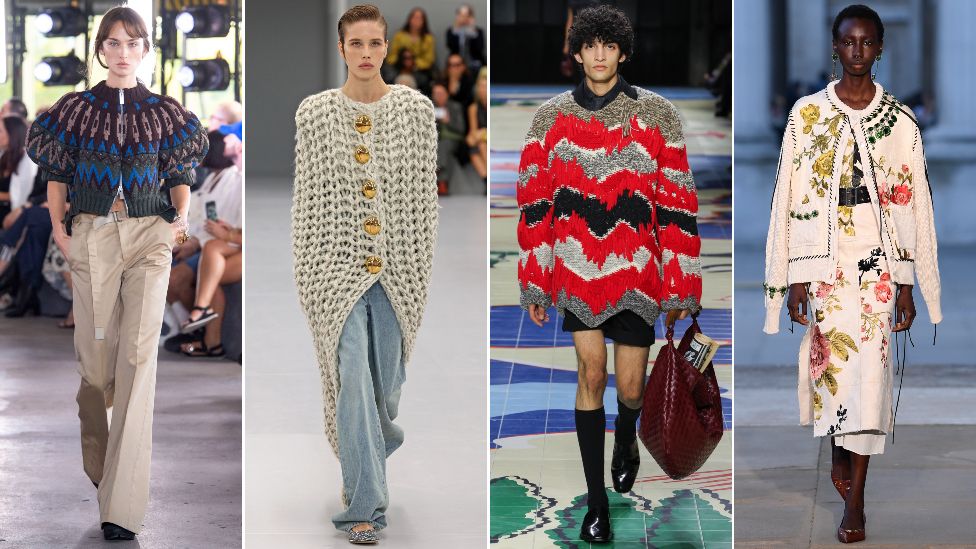
Let’s get down to the knitty gritty: In the UK, the weather is so appalling that frankly a nice cardigan or jumper never goes out of fashion.
According to Who What Wear, the SS24 collections acknowledged that “knitwear is a year-round staple, but one that should be no less fabulous than the rest of the items you wear”.
“Erdem’s embroidered cardigans were some of the most beautiful pieces we saw,” they added.
Elsewhere, W magazine suggested: “Cardigans and fair isle knits were the most prominent knitwear trend this season.”
5. Snowflake patterns
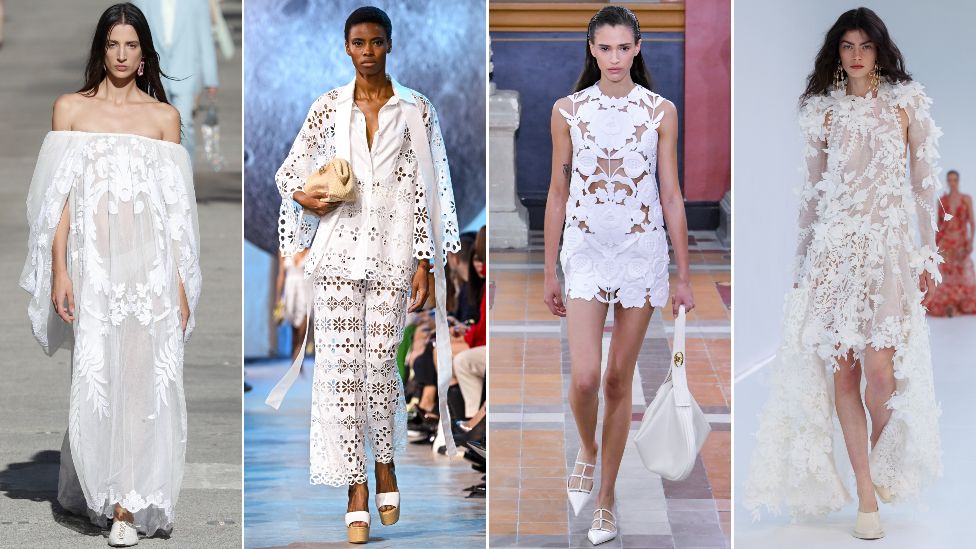
We admit these beautiful and intricate designs are a bit more sophisticated than the snowflakes we made in school with some paper and a pair of scissors.
“Designers got crafty this season,” noted Drapers, “and the Paris runways were aflutter with super-size lace and broderie anglaise designs for SS24”.
(Don’t worry, we’ve already Googled it, broderie anglaise refers to patterns with small round or oval holes cut out of the fabric, providing the snowflake look.)
Several of the outfits on display during fashion weeks saw the snowflake design put front and centre, while others displayed them through an outer layer of sheer.
6. Bows and ribbons
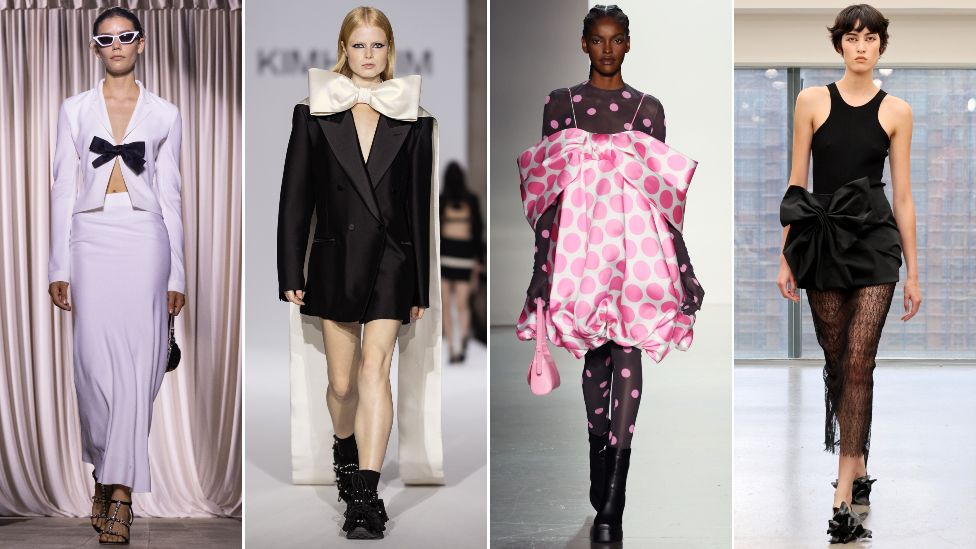
If you’re reading this in a room surrounded by discarded giftwrap, make sure you scoop up those bows and ribbons before they reach the rubbish bin.
Giant bows showed up in the collections of several major designers during the various fashion weeks, so we could be seeing them adorn a variety of dresses next year.
“Oversized and opulent bows, spotted at shows like Sixdo and Aknvas, added a touch of whimsy to looks that were otherwise simple or unadorned,” according to InStyle.
But not all fashion houses went for large and conspicuous designs – others opted for much smaller bows and ribbons to decorate, accessorise or tie together outfits.
“The dainty accessory creates a soft, romantic look no matter how it’s worn, acting as garment detailing for a slew of different silhouettes,” suggested Nylon.
7. Short shorts
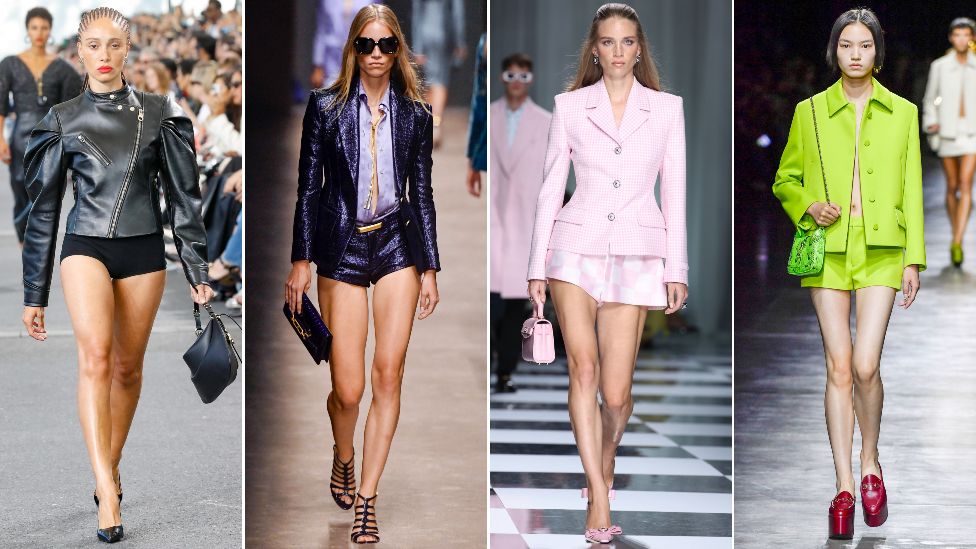
If you already feel overloaded by the number of tabloid headlines which use the phrase “leggy display”, then you may want to skip this one.
This summer will likely see an explosion in popularity for short shorts in a variety of colours, styles and fabrics.
“Those leg days at the gym are about to pay off,” said Net-A-Porter, “because if the recent runways told us anything, it’s that seriously short shorts are set to be the ultimate power-dressing move come summer ’24.”
8. Upcycled, pre-loved or sustainable materials
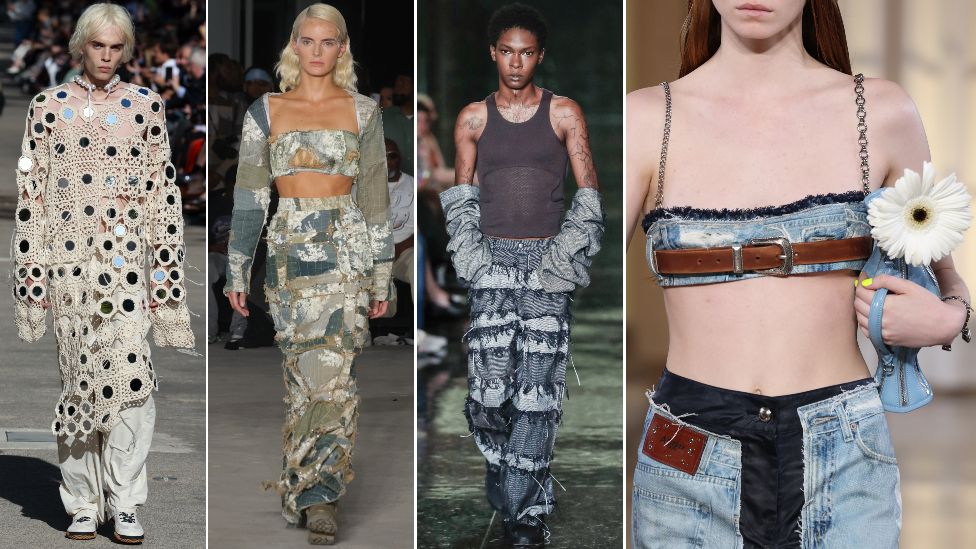
Arguably the most important fashion trend we could all adopt in the coming year is green. But not the colour.
Sustainability has long been a concern in relation to the highly-polluting fashion industry. A huge number of consumers buy something cheap, wear it a few times, and then chuck it out.
Tiny steps are being taken to address the industry’s carbon footprint, such as the increasing popularity of websites which specialise in “pre-loved fashion”, but many feel a great deal more needs to be done.
So we applaud the designers who are putting sustainability in the spotlight – either by changing their working practices, or by incorporating used materials into their designs.
Examples highlighted by British Vogue include Stella McCartney’s use of Kelsun, a seaweed-based fibre that is said to have a significantly lower carbon footprint than conventional fibres.
Eckhaus Latta, meanwhile, showed a series of trousers that were 3D woven from yarn, cutting out the fabric-making process and reducing the amount of excess stock by making the manufacturing process more agile.
“Waste materials and deadstock are given a second life as new garments,” said Fashion United. “Materials destined for landfill are rescued and reworked. Pieced, patched, and layered together with imperfections and signs of wear and tear celebrated rather than hidden.”
As consumers’ awareness of their carbon footprint increases, perhaps the items many will choose to wear the most in the coming year are the clothes already in their wardrobe.
